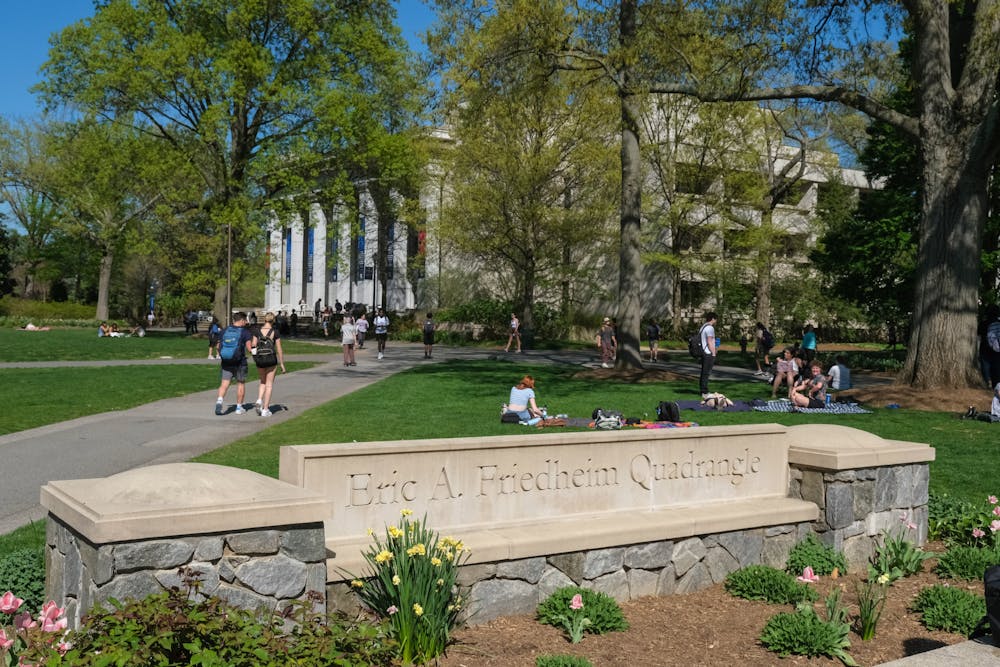Palestine Legal, a Chicago-based nonprofit that defends the civil rights of people in the United States who speak out for Palestine, demanded on Instagram Feb. 28 that American University take immediate action to cease the repression of Palestinian groups on campus.
The organization called on the University to release a statement of support for Palestinian, Arab and Muslim students, condemn the doxxing and harassment students face and affirm students’ rights to advocate for Palestine on campus.
The demands came as a response to the University’s new protesting policy, which banned all indoor protests at AU and required that clubs and posters on campus must promote “inclusivity.”
The Instagram post said Palestine Legal rejects the idea “that expressions of support and solidarity with Palestine are ‘hateful and exclusionary.’”
Rifqa Falaneh, the Michael Ratner Justice Fellow at Palestine Legal, wrote in a statement to The Eagle that students should be allowed to express their views without fear of repression. She also wrote that students advocating for Palestine faced doxxing campaigns that suppressed their advocacy efforts.
“These demands are simply a call for the school to meet its basic legal and moral obligations to provide all students equal access to a supportive and open learning environment free of discrimination,” Falaneh wrote. “As an institution that claims to be committed to protecting free expression for its community, it should be listening to the concerns of their students and protecting student advocacy for Palestine.”
Palestine Legal also criticized the University in the Instagram post for “cracking down” on Palestinian activism with an “increased police presence and cooperating with the FBI.” The University partnered with the FBI in October following antisemitic vandalism in Letts Hall and a hateful anti-Palestinian note to a Palestinian professor.
Palestine Legal said that it hopes to not have to take legal action against the University, but is “committed to defending the students at American University who are advocating for Palestine.”
“We are supporting our community, engaging with our students, addressing concerns, and providing a safe campus and advancing students’ sense of belonging. While we review perspectives from external organizations, our focus is and must be on our students, faculty, and staff,” said Matthew Bennett, the University’s vice president and chief communications officer, in a statement to The Eagle.
“As students at AU, we should be able to use our voices to express our dissent against genocide, and AU has shown us that only speech they agree with is allowed to be spread on campus,” AU Students for Justice in Palestine wrote in a statement to The Eagle. SJP wrote that the new policies are meant to “target [their] growing movement, further silencing all student speech.”
“We are all at risk with these new policies, and have already seen the silencing attempts on campus erase our expression and personal values,” SJP wrote.
SJP also said that President Sylvia Burwell ignores reports of harassment that the organization faces and “refuses to create a policy to protect pro-Palestinian students against this act of intimidation and violation of privacy.”
“We will continue to challenge our suppressive institutions and demand accountability and support for all their students, by ending the clear ill discrimination we have been facing on campus,” SJP wrote in their statement. “In advocating for human rights, we have seen that AU does not uphold the values they claim to stand for.”
This article was edited by Tyler Davis, Zoe Bell, Abby Turner and Abigail Pritchard. Copy editing done by Luna Jinks, Isabelle Kravis, Ariana Kavoossi and Charlie Mennuti.





